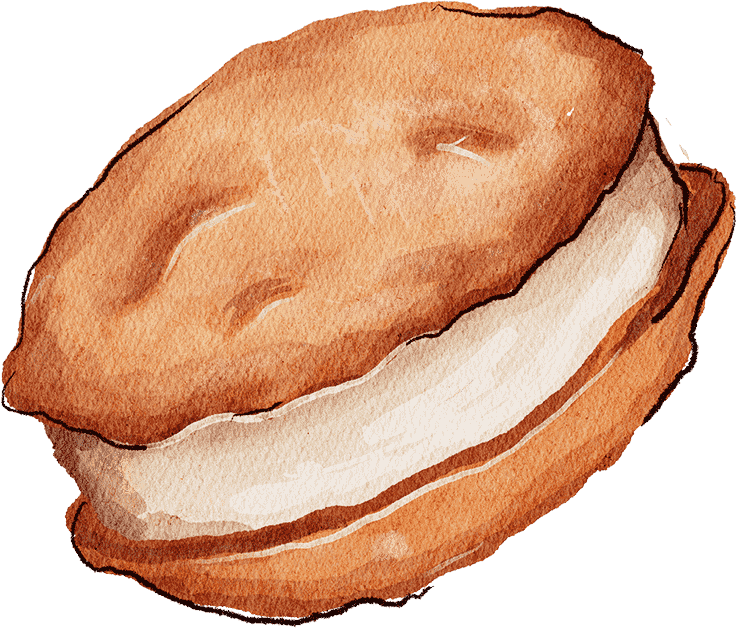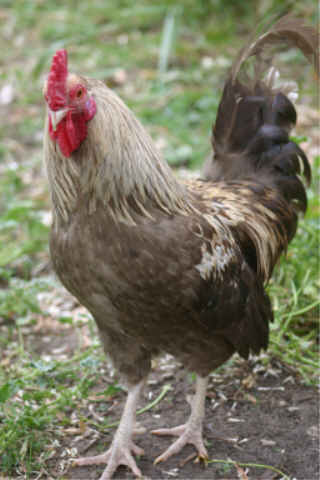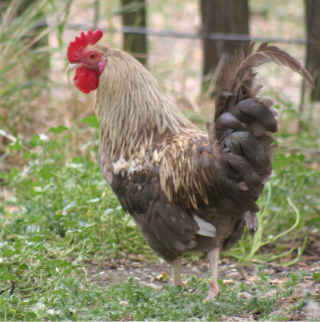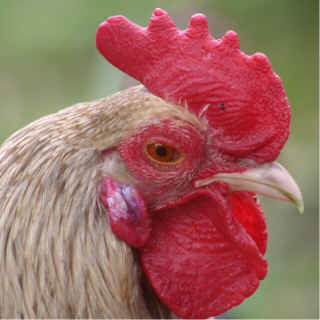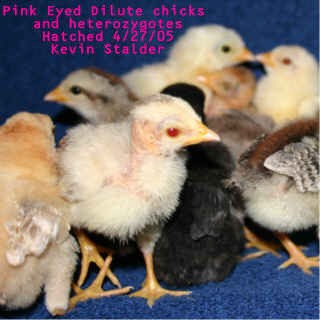Chicken Genetics Projects
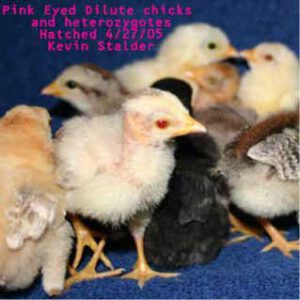 Several years ago, I received a rooster from Dr. Willard F. Hollander to test for Pink-eyed Dilute. He had maintained a flock of genetically valuable chicken stocks from many sources, but was concerned and somewhat convinced that the pink-eyed gene was extinct. The rooster he sent with me to test had a chance of being heterozygous for Pink-eyed Dilute, and was the last possibility that the gene existed as far as he knew.
Several years ago, I received a rooster from Dr. Willard F. Hollander to test for Pink-eyed Dilute. He had maintained a flock of genetically valuable chicken stocks from many sources, but was concerned and somewhat convinced that the pink-eyed gene was extinct. The rooster he sent with me to test had a chance of being heterozygous for Pink-eyed Dilute, and was the last possibility that the gene existed as far as he knew.
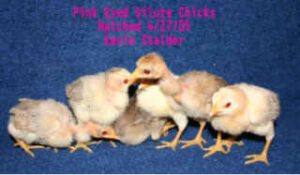 After a productive breeding season using the rooster to an unrelated flock of hens, I kept his daughters and bred them back to him the next year. Long story short, a homozygous Pink-eyed Dilute pullet was hatched and it looked like the stock was saved. Selective breeding and outcrossing to primarily bantam stocks have secured the mutant’s survival, at least for the near future. Contacts with Poultry Departments at Universities across the country confirmed that the stock does not exist in any of their collections. It appears this is the only source left on the planet.
After a productive breeding season using the rooster to an unrelated flock of hens, I kept his daughters and bred them back to him the next year. Long story short, a homozygous Pink-eyed Dilute pullet was hatched and it looked like the stock was saved. Selective breeding and outcrossing to primarily bantam stocks have secured the mutant’s survival, at least for the near future. Contacts with Poultry Departments at Universities across the country confirmed that the stock does not exist in any of their collections. It appears this is the only source left on the planet.
Pink-eyed Dilute Chickens
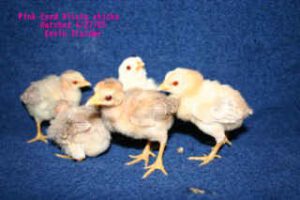 The rooster in the photos was yearling when the pictures were taken. He is homozygous Pink-eyed Dilute. The PED gene washes out, or blocks about half the melanin in the feathers turning black feathers to a near dun color. Chicks hatch with pale down and bright pink eyes. As they grow, the eyes darken, but remain somewhat pink. NOTE: Pink-eyed Dilute is genetically unrelated to the Dun gene that is found much more commonly.
The rooster in the photos was yearling when the pictures were taken. He is homozygous Pink-eyed Dilute. The PED gene washes out, or blocks about half the melanin in the feathers turning black feathers to a near dun color. Chicks hatch with pale down and bright pink eyes. As they grow, the eyes darken, but remain somewhat pink. NOTE: Pink-eyed Dilute is genetically unrelated to the Dun gene that is found much more commonly.
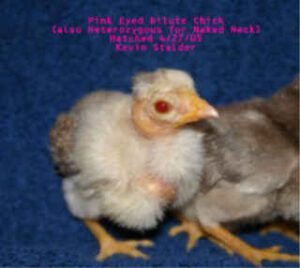 My efforts in maintaining the Pink-eyed Dilute stock is the primary reason I have the chicken flock. There are however, multiple other mutants that I have in the group as well. Multiple spurs, Duplex comb, Dun, and Naked-neck among many others, keep things interesting.
My efforts in maintaining the Pink-eyed Dilute stock is the primary reason I have the chicken flock. There are however, multiple other mutants that I have in the group as well. Multiple spurs, Duplex comb, Dun, and Naked-neck among many others, keep things interesting.
I have now been working on this project for several years and have developed a secure stock of these birds. I am producing Pink-eyed Dilute chicks regularly from both pink-eyed parents and heterozygous breeders.
****If you are interested in participating in preserving this mutant, please contact me. I think it is dangerous to have all of the gene pool in one place. Spreading this out is important to its survival.
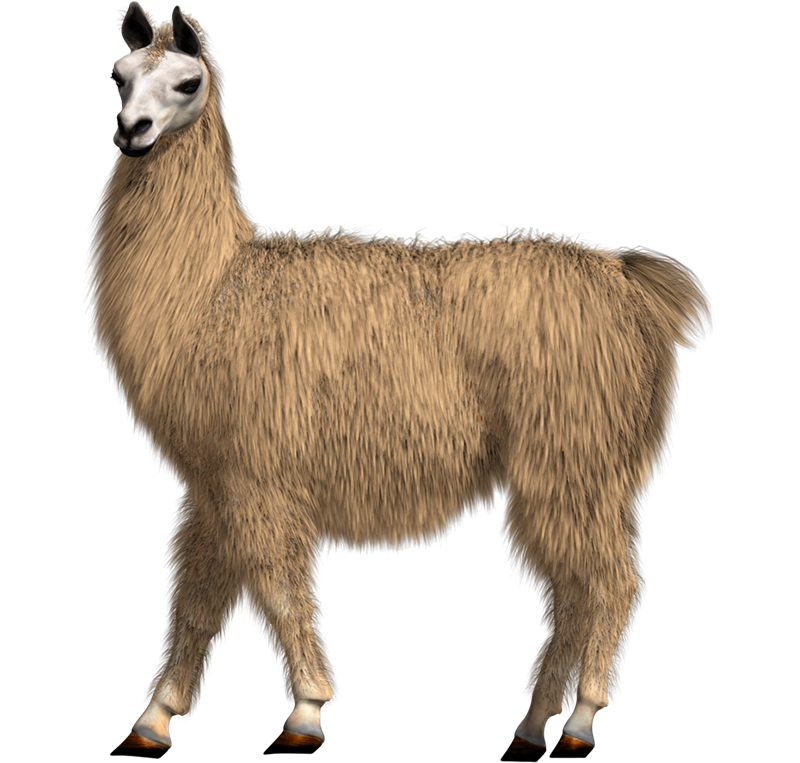
Get In Touch!
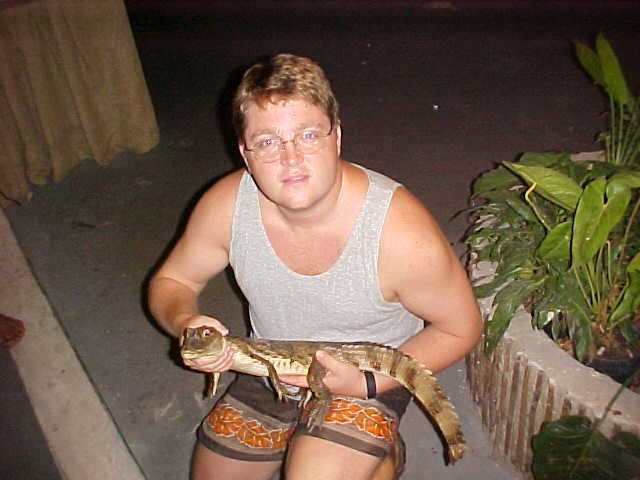
Contact Me
Kevin Stalder
Phone
(235)-462-4634
Address
